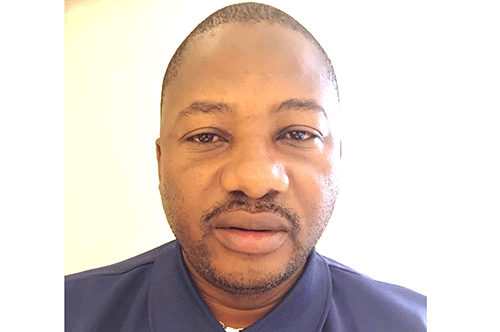I have worked in most of the major newsrooms in Namibia, serving in roles as both an editor and a journalist.
Editors and journalists are regularly involved in the ongoing debate – occasionally intense – concerning the dependence on a select group of commentators.
News consumers have grown accustomed to political and social pundits, such as Ndumba Kamwanyah, Rui Tyitende and Graham Hopwood, as well as a few economic experts like Mally Likukela – all of whom are male.
This is a select group that journalists in Namibia consult for analysis on significant societal topics such as politics, economics and social issues.
This has created tension in the newsrooms, with editors insisting that journalists seek commentary from a broader range of analysts, particularly including female voices.
On the flip side, journalists often argue that Kamwanyah or Tyitende are the only ones available and prepared to offer their political perspectives.
As journalists, we consistently strive to find female experts for commentary.
Our universities boast highly-qualified women academics, and there are equally intelligent women in both the public and corporate sectors.
However, journalists are facing difficulties in getting these women to share their views with the media.
Now that the election season is fully underway, we find ourselves at a crucial juncture.
Politicians are mobilising in full force to sway voters in their favour, as we approach the Presidential and National Assembly elections on 27 November.
Meanwhile, as journalists, we are actively covering political rallies and other election-related activities, fulfilling our role of keeping the public informed.
This is a critical moment when we rely on political analysts and commentators to help us make sense of all the campaign trail rhetoric.
This is only possible with a wide range of experts.
Political commentaries play a crucial role during elections by informing and shaping public opinion.
They help analyse candidates’ policies, performances and campaign strategies, aiding voters in making informed decisions beyond mere political slogans.
Experts can also help the media reveal inconsistencies, examine promises, and bring attention to neglected issues.
By encouraging debate and holding candidates accountable, they strengthen the democratic process.
Therefore, gender diversity is essential in political commentary.
It is important to have a range of both male and female experts participating in these discussions, especially during elections.
A small pool of male voices dominating the current political discourse may limit the public’s access to a variety of points of view.
Women and men often have different life experiences, priorities and insights.
These differences can make political analysis more interesting.
For instance, women academics are more likely to talk about problems like childcare, healthcare, education and gender equality that are not discussed much in mainstream political commentary.
Female analysts can contribute to broadening the public conversation and ensuring the consideration of a wider range of problems by providing these points of view.
Female academics and experts may hesitate to engage in political commentary for several reasons.
One possible reason is that they may feel undervalued in comparison to their male counterparts.
In my extensive experience in the newsroom, I have observed that local journalists are striving to diversify political analysis.
They are actively seeking out female academics who can provide unique perspectives on current issues.
Every day, journalists exchange the contact details of female academics and experts in the hopes of interviewing them for their insights, but often to no avail.
Why do they hesitate to share their expertise?
Are their employers stifling them?
One can only guess.
I believe our universities, public institutions, including State-owned enterprises, and the business sector can encourage female experts within their ranks to contribute to public debate through the media.
Training women to communicate effectively with the media and supporting those who feel uncomfortable expressing their opinions can achieve this.
By fostering a welcoming environment, institutions can help female academics feel more secure and empowered to share their expertise.
*Andreas Thomas is a seasoned journalist. The views expressed in this article are strictly personal, and do not in anyway reflect those of his employer.



